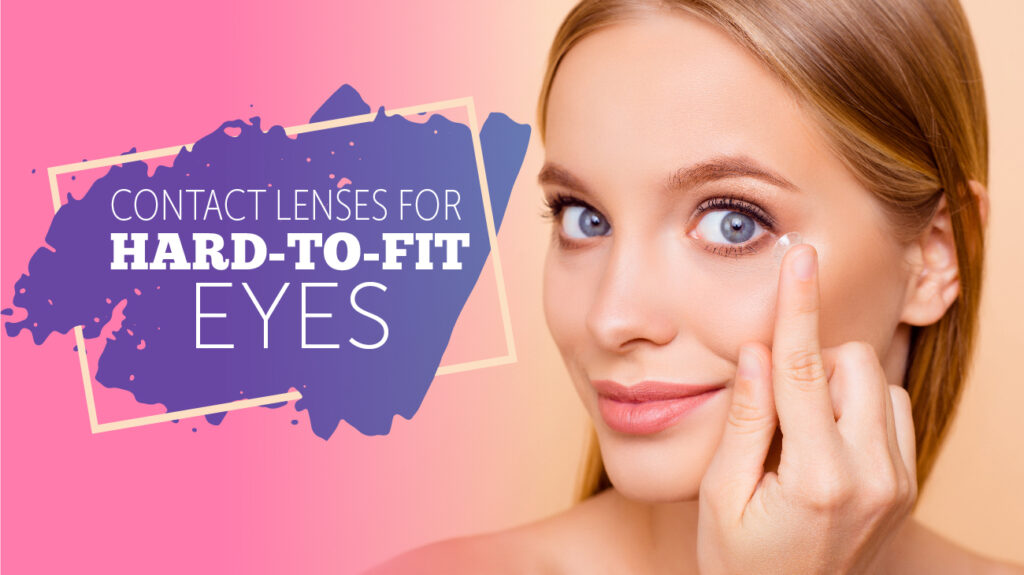If you have astigmatism, dry eyes, or keratoconus, you may have a harder time finding contact lenses work for you. Specialty contact lenses may be the answer.
Specialty contact lenses for keratoconus
This condition occurs when your cornea thins and forms into a cone-like shape, causing your vision to become distorted and your eyes more sensitive to light. If you have this condition, you may see better with contact lenses that replace the irregular shape of the cornea with a smooth surface, allowing light to focus better on the retina.
Gas permeable contact lenses
For those with mild to moderate keratoconus, gas-permeable contact lenses may help. They are made with an oxygen-permeable material and keep their shape instead of fitting the cornea. These lenses reduce blur and help provide sharper vision than glasses.
Piggybacking contact lenses
People who use gas permeable lenses may find the rigid lenses uncomfortable to wear at length. In this case, “piggybacking”- wearing a soft contact lens under the gas permeable lens – may be an alternative. The two lenses work together for vision and comfort.
Astigmatism
Astigmatism is a difference in the shape of the cornea that makes it harder for the eyes to focus on light, which results in blurred vision.
Toric contact lenses
These lenses provide comfort without a period of having to break in the lenses. This option is more complicated because it takes more time to fit than the traditional soft lenses. They are designed specifically for your eyes, and can be pricey.
Contact lenses for dry eyes
Dry eyes are a common issue, and they make it uncomfortable to wear contact lenses. If you have dry eyes and still want to wear contacts, soft contacts help hold in the moisture in your eyes.
Specialty lenses and giant papillary conjunctivitis
This eye condition causes inflammation in the mucous membrane that covers the white part of your eye. Known as pink eye, this condition is caused by bacteria, viruses, or fungi.
Your eye doctor may take different routes with contacts if you have GPC. They may recommend soft and disposable contact lenses that are worn throughout the day and then thrown away.
Lenses for presbyopia
Presbyopia occurs when you lose the ability to focus on objects up close, and your eye doctor may recommend bifocal or monovision contact lenses. These lenses are challenging to fit and require more time and money to get it right. If fit correctly, bifocal or monovision lenses can provide many benefits.
Do you have more questions about the specialty contact lenses you can use for your lifestyle? Contact our office today and ask us your vision questions!



